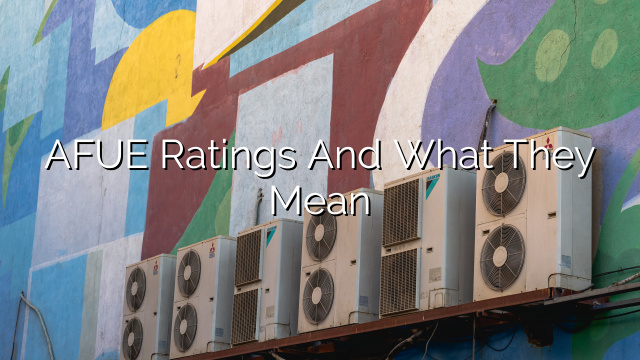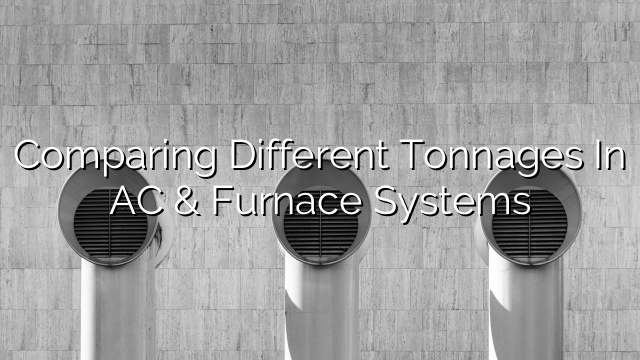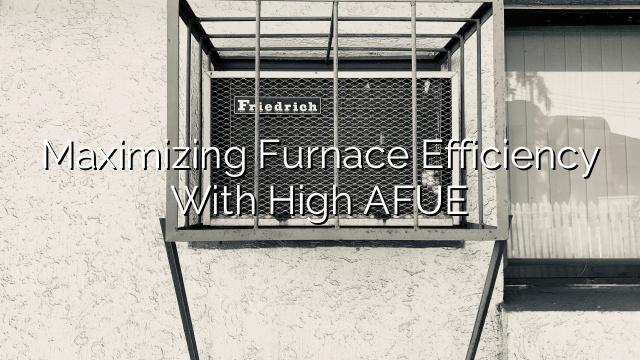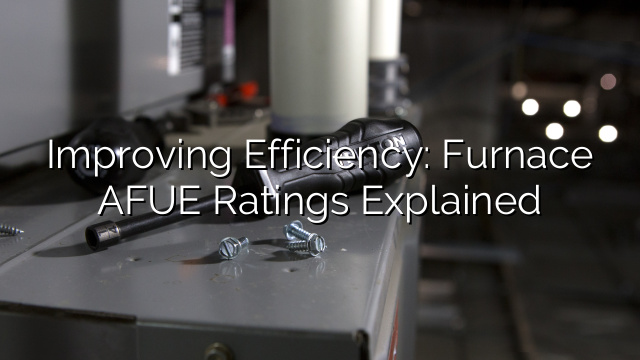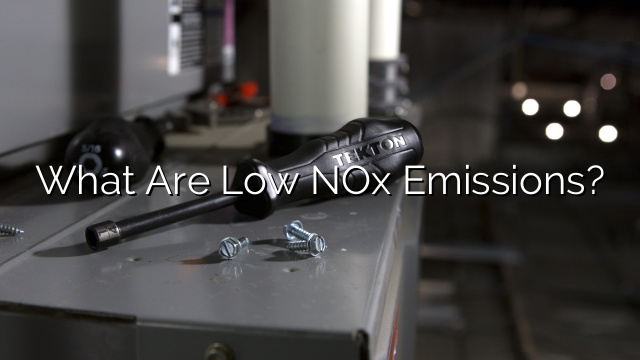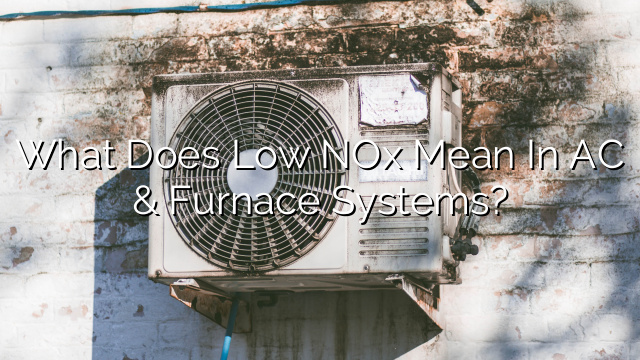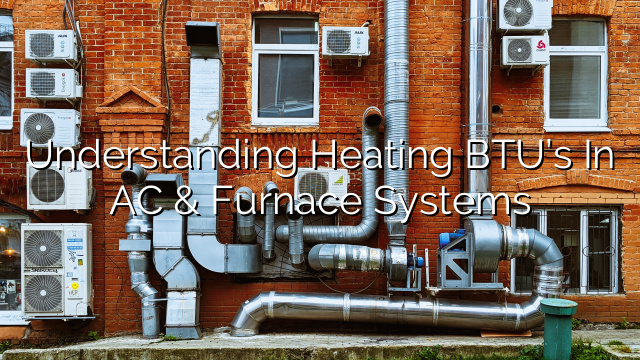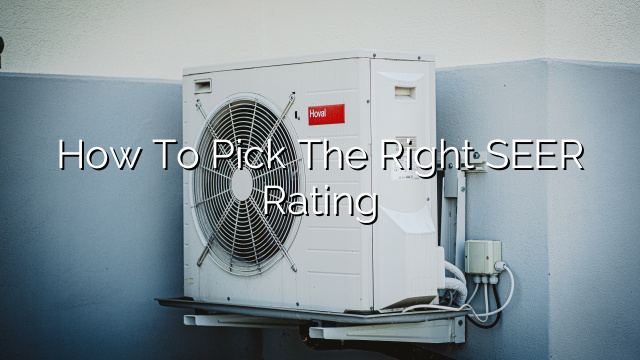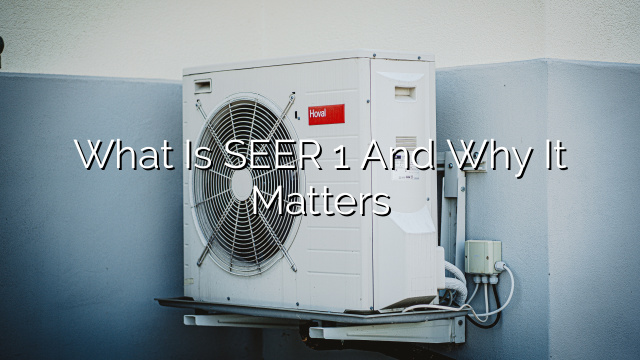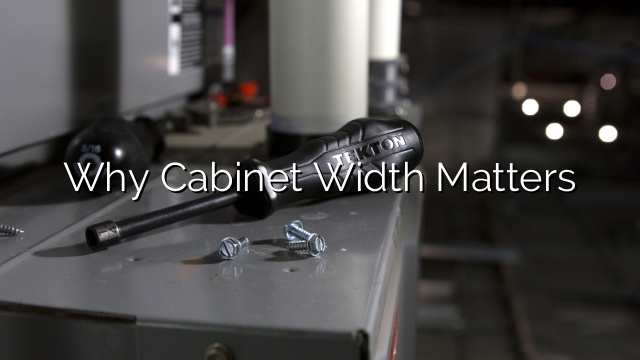AFUE Ratings and What They Mean
When it comes to heating and cooling systems, efficiency is a key factor to consider. The more efficient a system is, the less energy it will use, saving you money on your utility bills. One way to measure the efficiency of a furnace is through its Annual Fuel Utilization Efficiency (AFUE) rating. In this article, we will explore what AFUE ratings are and what they mean for your AC & furnace system.
What is AFUE?
AFUE stands for Annual Fuel Utilization Efficiency. It is a measurement used to determine the efficiency of a furnace or heating system. AFUE is expressed as a percentage and represents the amount of energy that is converted into useful heat. For example, an AFUE rating of 80 means that 80% of the fuel is used to heat your home, while the remaining 20% is lost through combustion gases and other forms of heat escape.
What Do AFUE Ratings Mean?
AFUE ratings provide a way to compare the efficiency of different heating systems. The higher the AFUE rating, the more efficient the system. Here are some common AFUE ratings and what they mean:
1. 80% AFUE: This is the minimum AFUE rating required by law for new furnaces. It means that 80% of the fuel is converted into heat, while the remaining 20% is lost.
2. 90% AFUE: This rating indicates a high-efficiency furnace that converts 90% of the fuel into heat, with only 10% lost.
3. 95% AFUE: Furnaces with a 95% AFUE rating are considered very efficient. They convert 95% of the fuel into heat, with only 5% lost.
4. 97%+ AFUE: These are top-of-the-line furnaces that offer the highest level of efficiency. They convert 97% or more of the fuel into heat, with minimal loss.
How Does AFUE Affect Energy Efficiency?
The AFUE rating of a furnace directly impacts its energy efficiency and, in turn, your utility bills. A higher AFUE rating means that the furnace is more efficient and will use less energy to heat your home. This not only helps to reduce your carbon footprint but also saves you money in the long run.
For example, if you have a furnace with an AFUE rating of 80% and your annual heating costs are $2,000, upgrading to a furnace with a 95% AFUE rating could save you approximately $400 per year. Over the lifespan of the furnace, these savings can add up significantly.
Other Factors to Consider
While AFUE ratings are an important factor in determining the efficiency of a furnace, there are other factors to consider as well. Here are some additional factors that can impact the overall efficiency and performance of your AC & furnace system:
1. Size and capacity: A properly sized furnace is essential for efficient performance. If the furnace is too large or too small for your home, it can lead to inefficiencies.
2. Ductwork: Leaky or poorly insulated ductwork can result in heat loss, reducing the overall efficiency of your heating system.
3. Maintenance: Regular maintenance, such as cleaning or replacing air filters, can improve the efficiency and lifespan of your furnace.
4. Insulation: Proper insulation in your home can help to retain heat and reduce energy waste.
By considering these factors in addition to the AFUE rating, you can ensure that you choose the most efficient AC & furnace system for your home.
FAQs
- What is considered a good AFUE rating?
- A good AFUE rating is typically considered to be 90% or higher. However, the right AFUE rating for your home depends on various factors, including climate, insulation, and your budget.
- Do I need a furnace with a high AFUE rating?
- While a high AFUE rating can provide greater energy savings and efficiency, it may not be necessary for every home. Factors such as climate, utility costs, and your budget should be taken into consideration when choosing a furnace.
- Can I retrofit my current furnace to improve its AFUE rating?
- In some cases, it may be possible to retrofit your current furnace to improve its AFUE rating. This can include adding insulation, upgrading components, or performing regular maintenance. However, it is essential to consult with a professional to determine if retrofitting is a feasible option for your specific furnace.
- Do all heating systems have AFUE ratings?
- No, AFUE ratings apply specifically to furnaces or heating systems that burn fuel, such as natural gas or heating oil. Other heating systems, such as heat pumps or electric furnaces, have different energy efficiency ratings.
- Is it worth investing in a high-efficiency furnace?
- Investing in a high-efficiency furnace can be worth it in the long run, especially if you live in a cold climate. While the upfront cost may be higher, the energy savings over time can offset the initial investment.
- How often should I have my furnace serviced?
- It is recommended to have your furnace serviced at least once a year by a qualified HVAC technician. Regular maintenance can help improve efficiency, extend the lifespan of your furnace, and identify any potential issues before they become costly repairs.

